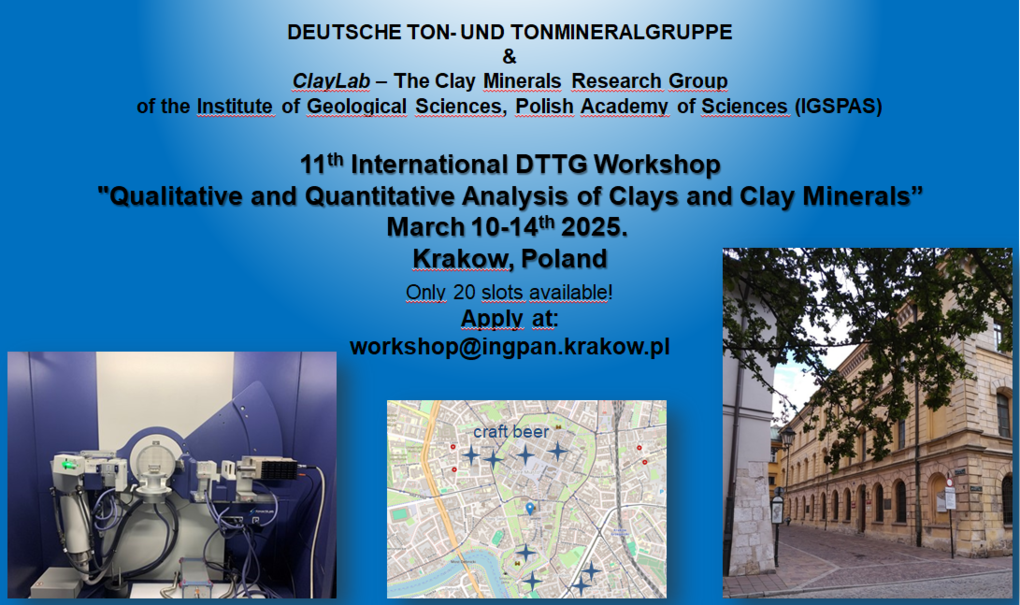




Workshop consists of five full days of lectures and hands-on laboratory training on:
Lecturers and laboratory instructors: Georgios D. Chryssikos (National Hellenic Research Foundation, Athens, Greece), Katja Emmerich (Karlsruhe Institute of Technology, Germany), Albert H. Gilg (Technische Universität München, Germany), Georg Grathoff, Laurence Warr (University of Greifswald, Germany), Stephan Kaufhold (BGR, Hannover, Germany), Reinhard Kleeberg (TU Bergakademie, Freiberg, Germany), Michael Plőtze (ETH Zürich, Switzerland), Zuzanna Ciesielska, Arkadiusz Derkowski, Nadine Kanik, Mariola Kowalik-Hyla, Artur Kuligiewicz, Karolina Rybka, Marek Szczerba, Adam Zięba, (Polish Academy of Sciences, Krakow, Poland)
Who should apply: Ms/PhD students and professionals working with clay materials, clay-bearing rocks, and on clay-related topics. Background knowledge on clay mineralogy and analytical methods will be helpful.
How to apply: submit a CV/resume with a short description of clay-related topic(s) you work on to workshop@ingpan.krakow.pl (subject: Clay workshop). For students: please also submit a short description of your thesis and contact information to your supervisor.
Application deadline: December 10th, 2024. Acceptance decision will be sent by December 20th, 2024.
Venue location: IGS PAS Research Centre in Krakow, Senacka 1, 31-002 Krakow, Poland in the very heart of the Old Town, between the Market Square and the Wawel Royal Castle, with dozens of hotels, aparthotels, museums, restaurants and bars within 10 min walking distance.
Transportation:
Fee: